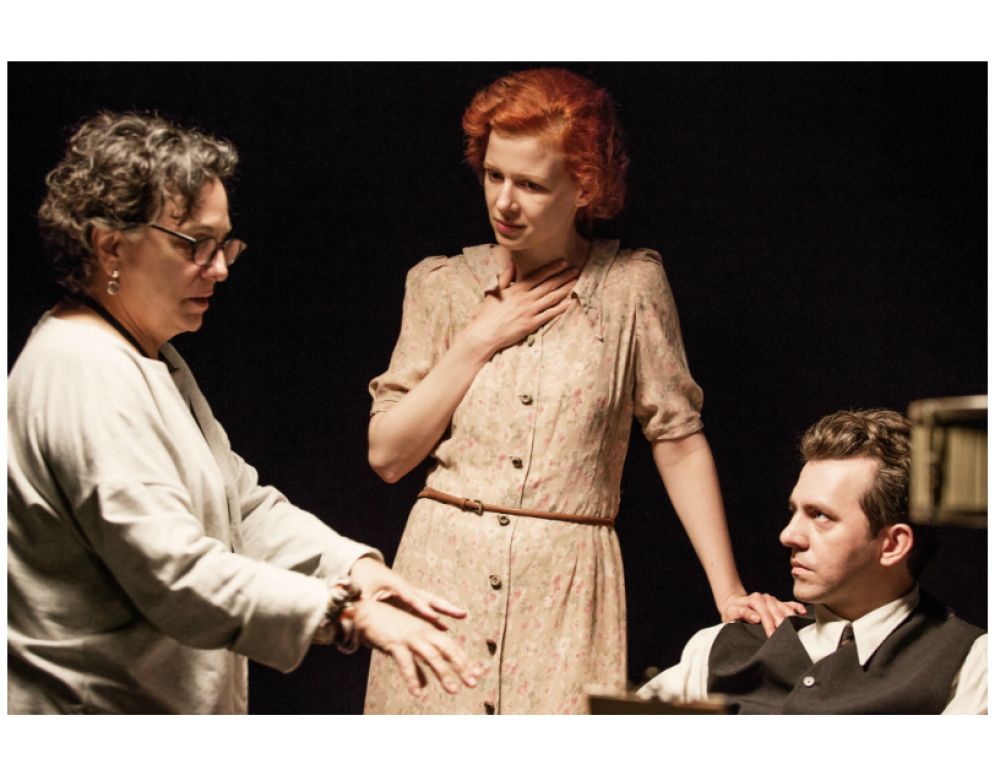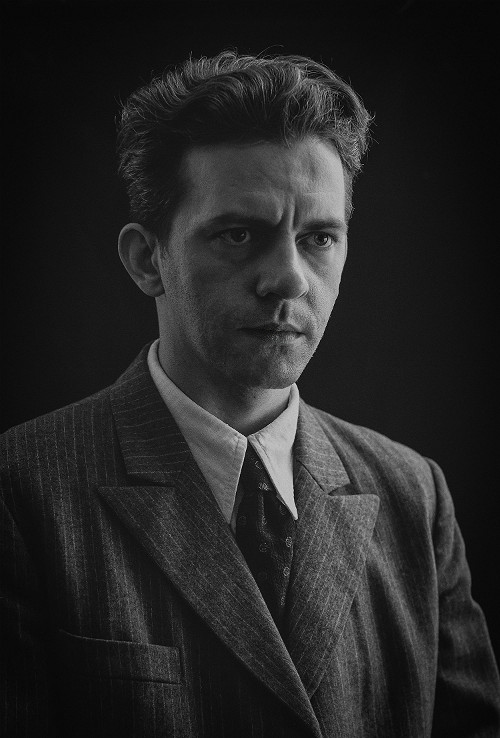- News
- Events
- Oneg Shabbat
- Collections
- Research
- Exhibitions
- Education
- Publishing Department
- Genealogy
- About the Institute
- Bookstore


When did you first learn about the Ringelblum Archive?
I’ve first come across the Archive during the making of Agnieszka Holland’s „In darkness”. The Karta publishing house published a selection of excerpts from the Archive (The Ringelblum Archive. The Holocaust day after day). Reading it had reinforced my intuition that there’s no single history. History is a collection of individual views. Everybody who says „we were doing this”, are manipulating. They take a single account, or a point of view, and try to generalize. It’s not the truth. If history is a kind of science which focusses on events, then – to use a theatrical metaphor – there must be a unity of time, place and action, before someone can say „we”. One has to remember that this „we” refers only to participation in events, not its judgement, perception or role it played in someone’s life. Somebody who, after the war, says „we were rescuing”, or „we were killing”, abuses the truth. The Archive confirms this completely. It’s a vision of a historian as someone who collects testimonies, accounts from people furing a certain situation.
The Archive gives faces back to numbers. Numbers are easy to pigeonhole, while particular faces, personal consciousness, someone’s eyes, lips, hands, people who give their personal accounts and who descirbe their own piece of reality – aren’t. I believe that rewriting history has become more difficult once the Archive has been made available. And I mean anyone who tries to generalize.
I wasn’t aware of this collection of documents before. It was an enormous discovery for me. During my conversations with various people, I’ve discovered that hardly anyone heard of Emanuel Ringelblum. Throughout the years, I’ve been following the Archive, and when a chance came to tell its story on the screen, I treated is as a gift from fate, professional and private stroke of luck. I felt that I’d be participating in something important, something that will spread the knowledge. When Roberta Grossman invited me to participate in telling the story of the Archive, we weren’t yet certain that we would make it, let alone dreamed of such vast distribution. And now, on 27 January, on the International Holocaust Remembrance Day, this film will tell the story of the Underground Archive of the Warsaw Ghetto to the whole world.
During the preparations, I had access to the original documents at the Jewish Historical Institute. It was very important for me, because the film contains events that Ringelblum wrote about. During the making of „The Golgotha of Wrocław”, the character I played had direct contact with letters written by people sentenced to death. I recall the impression which the original letters had made on me – I saw the strength of the pressure on the pencil, the hand someone was writing with, the way the letters were sloping. Handwriting is an evidence of the fact that someone was holding the pencil, that there was an elbow, an arm, a body, a head behind that hand. In a way, such a letter can affect you in the same way a record does. If we put our hand on the letters and move it, recreating the shape of the writing, we follow the movement of the person who was writing. For me, it hold such a power. When I was working on the role of Emanuel Ringelblum, I felt like a record player, a needle following the „record” of his handwritten notes. When I followed his movements, I embodied him. It may sound pompous, but it’s difficult to speak about these matters differently. One simply feels it.

Was it easy for you to empathize with his role?
In my professional approach, I’m equally close and far from every character. Close, because we’re fellow humans, and far, because we’re different people. This is especially true for characters based on reality. These were simply different people. If I said that I felt a close connection with Emanuel Ringelblum, it would have been an imposition, trying to jump on the bandwagon of his genius. I would rather say that a character inspires me to act, interests me, or makes me respectful. Acting brings us closer to a human being – like a needle in a record player.
Roberta had accepted, and we have responded to the fact that we’re vessels for passing information. We had to use our whole knowledge and skill to disappear in a way. Not to add anything, no interpretation, only transmission. Our living bodies were massa tabulettae for information which we had to give life to. It was very difficult, especially when significant issues are involved, but it gives a lot of satisfaction when we make it. Judging by the viewers’ reactions, we have made it. They react very emotionally to something which, in a conscious process, wasn’t directed at emotions, but at passing information.
It must have been difficult, especially that Ringelblum didn’t write much about himself...
I was searching for his strength. I have found it in his focus on the core of human existence, the power of human consciousness, the will which transgresses the life of the body. Also in the faith that information outlives energy and matter, that it’s stronger than violence. Even though our bodies won’t survive, he will keep living as a historian, as a living witness. We know as much about the world as much we’ve been given. Ringelblum, in full awareness, decided to take on a challenge which was bigger than himself. Such an approach is timeless.
When I was representing him on screen, it was important for me not to give in to my environment. If he did, he wouldn’t be able to complete his task. His enormous struggle was based on the power of his consciousness – while still having a socialist, materialistic approach to reality. This proves the power of his mind, his responsibility, that it is us who care for the shape of humankind.
This is also very socialist. What can we do to continue his work?
We must believe in the power of humankind and in equality of human existence. We must be brave enough to become role models for young people, who need role models, and whose positions are being taken by those who don’t believe in the human beings, who want to destroy them. The only thing we’re missing is the courage to grow up. When I talk about continuing Ringelblum’s work, I mean the fact that he gathered people from various fields, he set a target, and hed led them through this difficult situation. The things he said proved to be stronger than divisions made by people of small spirit, ones that he participated in before.
9 months after the filming, my children, Ida and Aaron, were born. My encounter with Emanuel Ringelblum made such an impact that our son was given a second name, Emanuel. [..] We couldn’t find names more beautiful than these.
In conversation with: Anna Majchrowska
The Emanuel Ringelblum Jewish Historical Institute, the Association of the Jewish Historical Institute of Poland and the Oneg Szabat Program are partners of the film and of the special screening, which took place on 27 January 2019.
